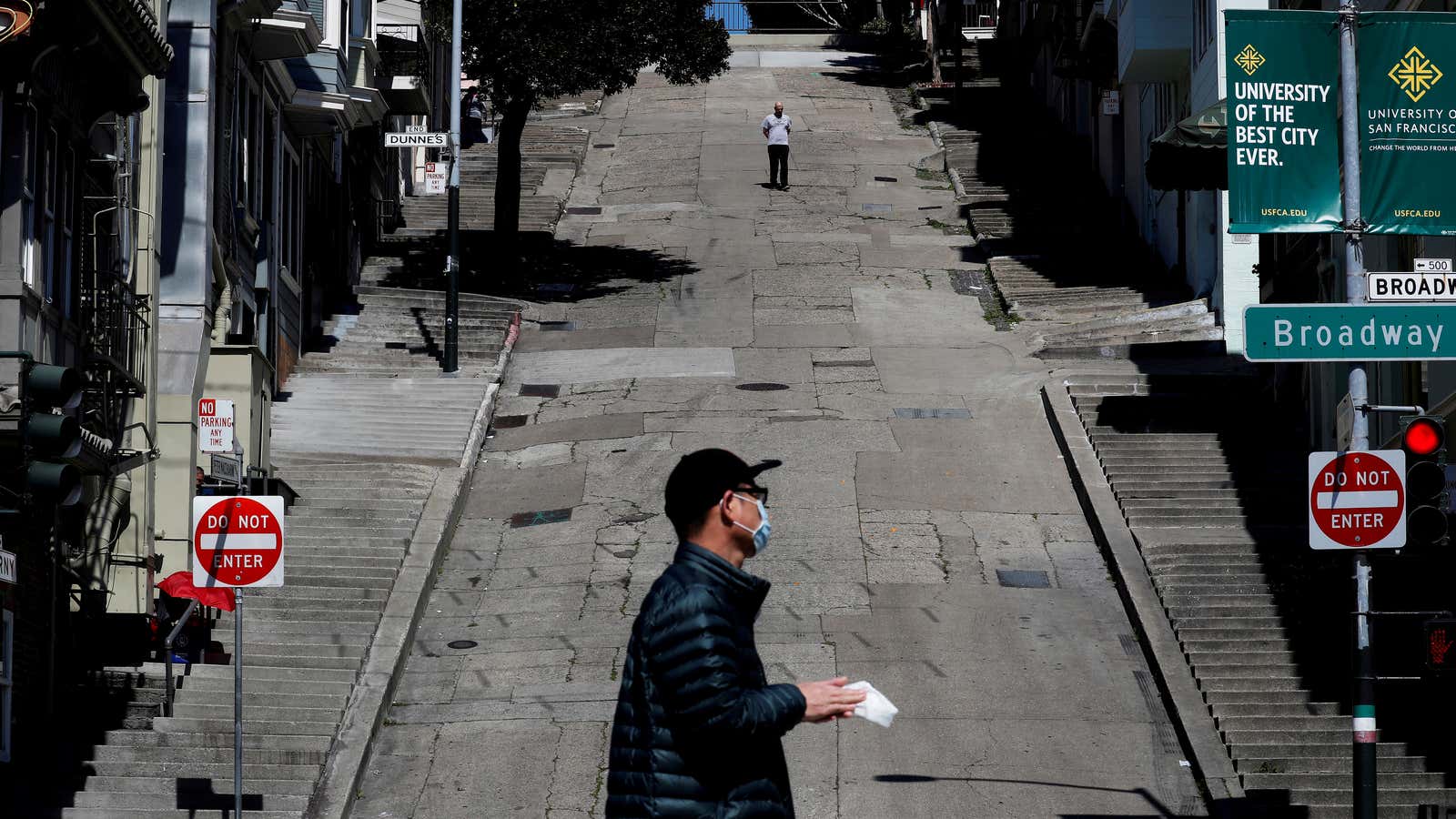Jeffrey Bussgang, a general partner at Flybridge Capital Partners, thinks of the startups in his portfolio on a 2×3 matrix. On the vertical axis, he asks, “Do they have cash to last at least 18 months?” He divides the horizontal access by how the pandemic has affected their business: positive, neutral, and negative.
Most tech startups around the world fall in the bottom left of Bussgang’s matrix—the danger zone—where, he says, they may need to cut costs by something like 60% to survive.
Early-stage tech startups typically aim to raise 12 to 18 months of financing at a time, meaning that even in good times new financing is required within a year and a half. But with the Covid-19 pandemic hurting revenue for most startups and making fundraising harder, most will run out of money sooner than that.
Getting out of the growth mindset
Startups that have raised venture capital tend to have more cash on hand than the average small business. But, unlike a lot of companies, they intentionally spend considerably more than they bring in, so they can grow. It’s usually not the best plan in a crisis.
“One of the big shifts for [startup] companies is getting out of the mindset that growth is what matters,” says Eric Paley, a managing partner at Founder Collective, a venture capital firm. “Time is what matters. Cash is your shield.”
The decrease in revenue is forcing startup founders to recalculate how long their cash will last. Less revenue means a higher burn rate, meaning less time until the company runs out of money.
In its survey of more than 1,000 tech startups in 50 countries, the research firm Startup Genome asked companies how many months until they ran out of cash—also called “runway”—and 41% reported three months or less. The methodology section of the survey reports that 5% of the companies surveyed have already closed.
A survey of 427 venture capital firms by First Republic Bank reported longer runways as of late March. VCs said then, on average, that 67% of the early-stage startups in their portfolios had at least a year before they’d run out of cash.
Why the difference between the two surveys’ runway estimates? A survey of VCs and their investments will exclude companies that haven’t raised venture capital and are either self-funding or funded by smaller angel investments—and which might therefore run out of cash sooner. And First Republic surveyed its clients, who predominantly invest in US startups; by contrast, the Startup Genome Survey was global.
But runway also depends critically on costs and how deeply startups cut them. It could be that VCs are factoring in much deeper cuts than startup founders have so far considered.
Deep cuts
How do startups cut costs? “There’s only one lever,” says Bussgang, “which is headcount.” Many startups are pausing hiring—in some cases for the remainder of the year—says Erin Scott, a senior lecturer at MIT Sloan School of Management. For startups planning to grow rapidly, a larger share of labor costs are in future hires, compared to the typical company, so pausing hiring can go a long way.
But for most startups, hiring freezes aren’t enough. Just under three-quarters of the startups surveyed by Startup Genome have already laid off full-time employees.
The deepest cuts have come at young companies, smaller startups, or those that haven’t raised money in a while, according to an analysis by Eddie Ackerman, head of financial analysis at venture capital firm Thomvest Ventures. Ackerman combined layoff data from a popular startup-world layoff tracker with company information from Pitchbook and analyzed the data alongside his portfolio to identify which kinds of startups were most affected by layoffs.
Sales and general management was the most common category of employee to be let go, followed by engineers, he found.
“Open for business”
The other way for startups to extend their cash runway, other than cutting costs, is to raise new funds. But the pandemic has made that much harder. Many VCs have made a point to announce that they’re still “open for business,” and many are still funding companies.
“It’s bravado,” says Bussgang. “New investments—if you’ve never worked with the team, never meet the team—those are dropping precipitously.”
Paley says his firm completed three investments in the last seven weeks. “Lots of VCs, like us, are genuinely open for business,” he says. “But I think there are definitely a lot of folks who are sitting back. Investors definitely retreat to protecting their portfolio.”
The longer the pandemic lasts, the more pressure there will be for VCs to start making deals over Zoom. “People are going to have to figure this out,” says Rob Day, a general partner at Spring Lane Capital, “because sitting in a conference room together is going to be one of the last things people want to do.”
Don’t start
As existing startups struggle to survive, the number of new ones being founded has dropped off a cliff. New business applications in the US are down 40%, and the recent declines in New York and Washington are “7.5 times steeper than those seen in New York after 9-11 and the onset of the Great Recession,” according to a calculation by several academics published in late April. They added that so far, the number of new startups in both states “show no signs of rebounding.”
